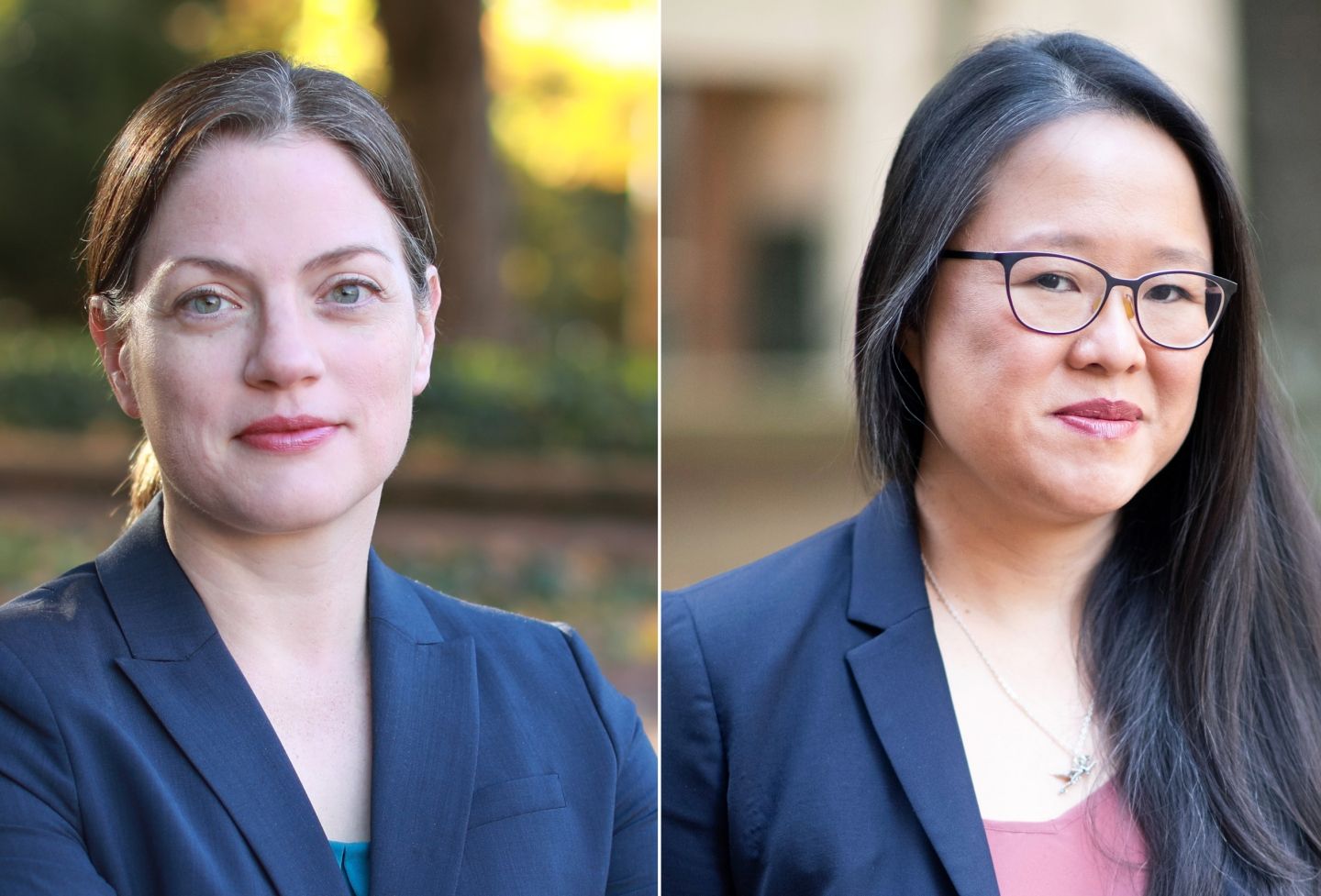Ruth Mason, the Edwin S. Cohen Distinguished Professor of Law and Taxation and the Class of 1941 Research Professor of Law at the University of Virginia School of Law, has been awarded a multiyear fellowship by Germany's prestigious Max Planck Society to research problems at the intersection of taxation and social policy. She will be hosted by the Max Planck Institute for Tax Law and Public Finance and the Max Planck Institute for Social Law and Social Policy, which are both located in Munich.
Election as a Max Planck Law Fellow is the highest honor the Max Planck Law network confers on scholars working outside the Max Planck Society, and Mason is one of just five current law fellows worldwide.
During the fellowship, Mason will spend half of each year in residence at the two institutes in Munich, researching the role of “interstate solidarity” in federations, including taxation, social security systems, and the effect of subsidies and transfers from wealthier states to poorer states.
“The Max Planck Society is one of the most important research institutions in the world, so this is a significant honor,” Mason said. “MPI has been on my radar for as long as I’ve been a tax professor, and I’ve visited the Institute for Tax Law and Public Finance many times to give talks and to attend conferences. But this fellowship represents a special opportunity for deep collaboration with other scholars and to mentor the brightest up-and-coming doctoral and postdoctoral students.”
With the challenges posed by globalization, pandemics, climate change and energy crises, federations — including the United States and Germany, and quasi-federal unions, such as the European Union — face increasing pressure to maintain social cohesion and economic solidarity. The two MPI directors who nominated Mason saw an opportunity to learn from one another’s expertise while exploring the legal puzzles inherent in these social problems.
Professor Wolfgang Schön, director of the MPI Tax Law and Public Finance Institute, nominated Mason for the fellowship, along with Professor Ulrich Becker, director of the MPI for Social Law and Social Policy. Both institutes are in Munich, where Mason will be in residence.
Each Max Planck Law Fellow heads, together with the two nominating directors, a Max Planck Law Fellow Group that pursues a fully funded joint research project.
“Our project will seek to uncover, catalog and understand fiscal mechanisms that forge federal solidarity, including dedicated instruments under social security laws,” Becker and Schön said. “Understanding federal fiscal solidarity is important not only to German and U.S. scholars, who live in overtly federal systems. It is also important for EU scholars, especially as the EU takes on more fiscal responsibilities — as it did during COVID-19 and has proposed to do more generally.”
The two hosting Max Planck Institutes in Munich are interdisciplinary research centers affiliated with the Max Planck Society, Germany’s foremost provider of foundational research in science and humanities, and they are funded largely by public resources. The institutes support Ph.D. and postdoctoral-level research but do not teach classes or confer degrees; instead, degrees are typically conferred by the institutes’ partner universities. The hosting institutes are part of “Max Planck Law,” a network of Max Planck Institutes performing research in law and neighboring disciplines.
In addition to collaborating with Becker and Schön, Mason will also supervise and support Ph.D. candidates as they research and write their dissertations, and she expects to mentor postdoctoral fellows who are preparing to enter academia.
An internationally recognized scholar, Mason lectures around the world and has been a visiting professor at several institutions, including Yale Law School, the University of Paris (Panthéon-Sorbonne), Vienna University of Economics and Business, and the International Bureau of Fiscal Documentation. She also has served as national reporter for the United States to the International Fiscal Association and is a member of the American Law Institute.
Mason’s research focuses on federalism, tax discrimination and cross-border taxation. Her work on comparative fiscal federalism has been cited by the U.S. Supreme Court and in the opinion of an advocate general of the Court of Justice of the European Union.
At UVA, Mason teaches taxation and serves as faculty adviser to UVA’s tax moot court team, which has won three international championships. She was named faculty director of the Virginia Center for Tax Law last summer.
Other Max Planck law fellow projects are exploring criminal law as a tool for governing society, the use of transitional justice and alternative dispute resolution after mass atrocities, the transnational production of human rights knowledge in Latin America, and independence and democracy in the European Union.
Since its founding, scientists supported by the Max Planck Society and its predecessor organization have won 38 Nobel Prizes. Legal research within the Max Planck Society started as early as 1926, establishing Max Planck as a worldwide brand for international and comparative legal scholarship in all major fields of the law, educating leading scholars around the world. Their work has been recognized with major awards in the field of humanities, such as the Balzan Prize, the Federal Order of Merit and most recently, the Feltrinelli Prize.
Founded in 1819, the University of Virginia School of Law is the second-oldest continuously operating law school in the nation. Consistently ranked among the top law schools, Virginia is a world-renowned training ground for distinguished lawyers and public servants, instilling in them a commitment to leadership, integrity and community service.


